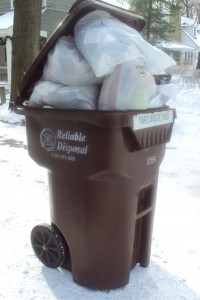Tonight I’m breaking stride, writing the blog from a miniature table in a tiny Starbucks, warmed by a tall cup of herbal tea. Floor-to-ceiling plate glass windows look out on a Christmas scene: well-decorated store windows, traffic lights “blinking a bright red and green” and a brick sidewalk on which a steady parade of shoppers pass.
Just outside the windows is a long line of trees laden with tiny white lights, making the street look every bit like a page from a fairy tale. Christmas carols are playing on the Starbucks speakers, and as if on cue, snow has begun to fall.
The counter top nearby is lined with cheery red bags of “Christmas Blend” coffee, and the menu posters overhead are coordinated with the same red, along with pictures of alluring cups of whipped-creamed-topped hot drinks. This scene couldn’t be more perfect. It’s a combination of “It’s beginning to look a lot like Christmas” and “Let it snow.”
All of us envision a similar perfection when we look toward the holidays. But even though I’ve not exaggerated my description of the scene, I’ve left out some of the details.
A mother and two elementary school boys just left the Starbucks with three cups of hot chocolate, but before they did, the mom had to grab each of them, point out my computer and yell a reminder that liquids and laptops don’t mix.
At the next table a husband and wife argued about where they’d eat dinner, one wanting hot dogs, the other a gourmet meal. When six middle school girls came in, the catty gossip flying between them nearly colored the air blue, and because of their dilly-dallying, the woman behind them eventually stormed off saying, “I don’t have all day to get one cup of coffee!”
A boyfriend and girlfriend became stressed when he decided nothing on the Starbucks menu interested him. Outside people hoped to stay warm by hunching forward as they walked through the bitter cold.
Scenarios of holiday strain dotted the Christmas-y atmosphere, destroying the fairy tale ambiance and reminding me life isn’t, nor ever will be, what it seems.
Lately I’ve noticed couples seated together in restaurant windows (including Starbucks), and feel a sense of self-pity. I’m not part of a couple anymore, and as I look through the windows, especially now with Christmas lights and music adding to the attraction, I long to be part of that picture. But I ought to remind myself things aren’t always as they seem. What looks idyllic may not be, and being jealous of a fairy tale picture is silly.
This principle holds true in the spiritual realm, too. The promises of this life are just like a seemingly beautiful scene. “Through the window” they look satisfying and delectable, and we project ourselves into those pictures. But if we go there, we learn it’s often just “smoke and mirrors.”
Most things aren’t as they seem, and spending time wishing or hoping when in truth we might not want them anyway, is foolishness indeed.
“You need to become a fool to be truly wise. For the wisdom of this world is foolishness to God.” (1 Corinthians 3:18-19)



